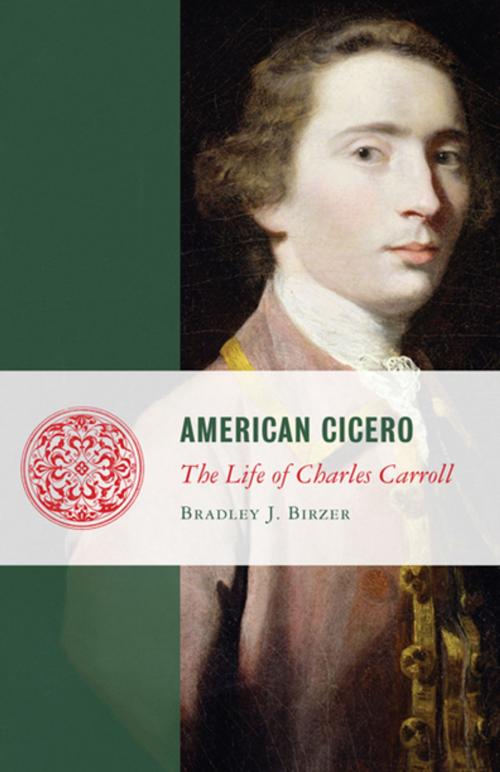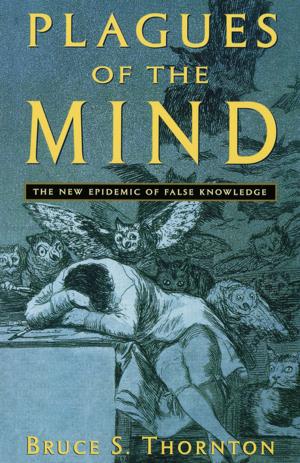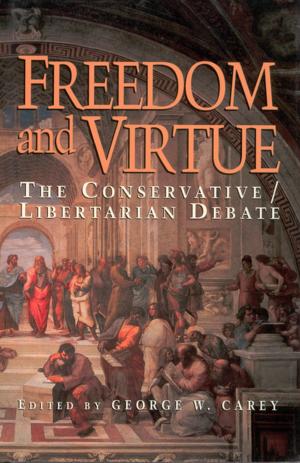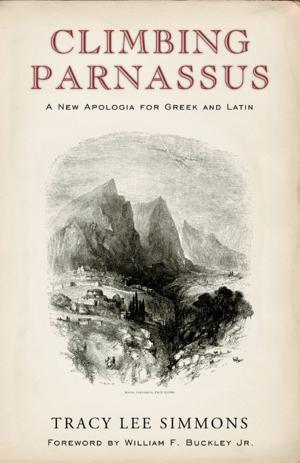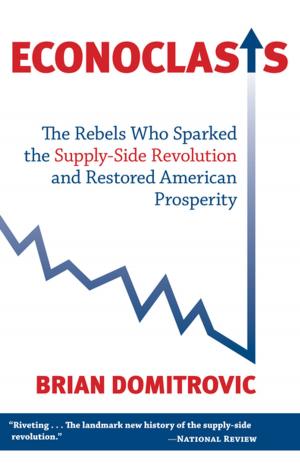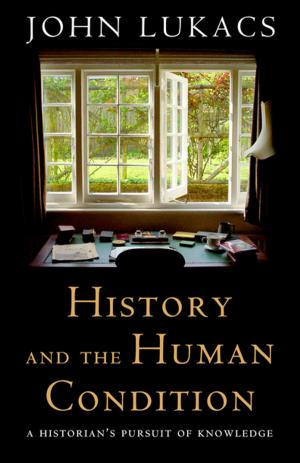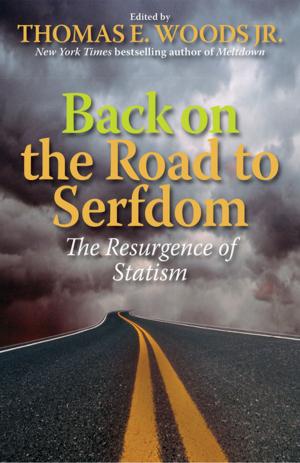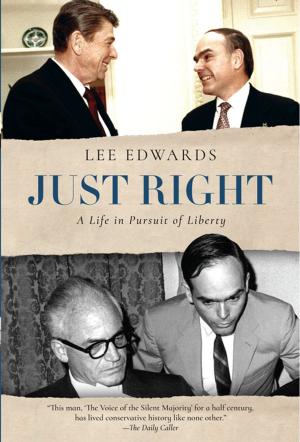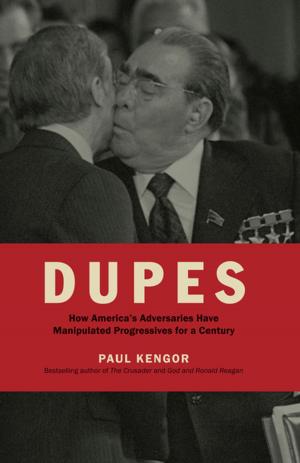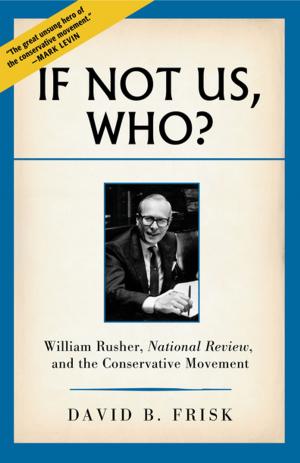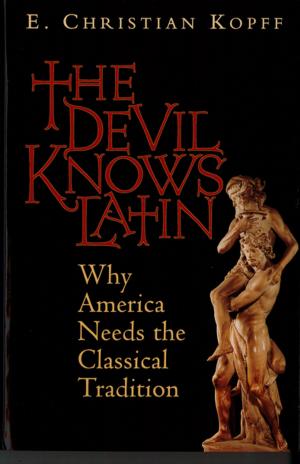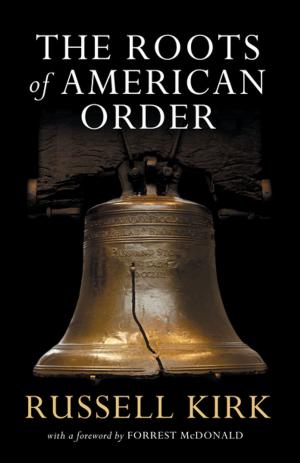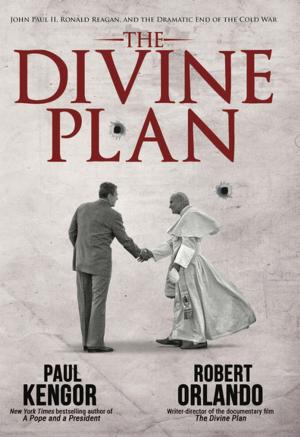| Author: | Bradley J. Birzer | ISBN: | 9781497635715 |
| Publisher: | Intercollegiate Studies Institute (ORD) | Publication: | April 22, 2014 |
| Imprint: | Intercollegiate Studies Institute | Language: | English |
| Author: | Bradley J. Birzer |
| ISBN: | 9781497635715 |
| Publisher: | Intercollegiate Studies Institute (ORD) |
| Publication: | April 22, 2014 |
| Imprint: | Intercollegiate Studies Institute |
| Language: | English |
Aristocrat. Catholic. Patriot. Founder.
Before his death in 1832, Charles Carroll of Carrollton—the last living signer of the Declaration of Independence—was widely regarded as one of the most important Founders. Today, Carroll’s signal contributions to the American Founding are overlooked, but the fascinating new biography American Cicero rescues Carroll from unjust neglect.
Drawing on his considerable study of Carroll’s published and unpublished writings, historian Bradley J. Birzer masterfully captures a man of supreme intellect, imagination, integrity, and accomplishment. Born a bastard, Carroll nonetheless became the best educated (and wealthiest) Founder. The Marylander’s insight, Birzer shows, allowed him to recognize the necessity of independence from Great Britain well before most other Founders. Indeed, Carroll’s analysis of the situation in the colonies in the run-up to the Revolution was original and brilliant—yet almost all historians have ignored it. Reflecting his classical and liberal education, the man who would be called “The Last of the Romans” advocated a proper understanding of the American Revolution as deeply rooted in the Western tradition. Carroll even left his mark on the U.S. Constitution despite not assuming his elected position to the Constitutional Convention: by inspiring the creation of the U.S. Senate.
American Cicero ably demonstrates how Carroll’s Catholicism was integral to his thought. Oppressed because of his faith—Maryland was the most anti-Catholic of the original thirteen colonies—Carroll became the only Roman Catholic to sign the Declaration of Independence and helped legitimize Catholicism in the young American republic.
What’s more, Birzer brilliantly reassesses the most controversial aspects of Charles Carroll: his aristocratic position and his critiques of democracy. As Birzer shows, Carroll’s fears of extreme democracy had ancient and noble roots, and his arguments about the dangers of democracy influenced Alexis de Tocqueville’s magisterial work Democracy in America.
American Cicero reveals why Founders such as John Adams assumed that Charles Carroll would one day be considered among the greats—and also why history has largely forgotten him.
Aristocrat. Catholic. Patriot. Founder.
Before his death in 1832, Charles Carroll of Carrollton—the last living signer of the Declaration of Independence—was widely regarded as one of the most important Founders. Today, Carroll’s signal contributions to the American Founding are overlooked, but the fascinating new biography American Cicero rescues Carroll from unjust neglect.
Drawing on his considerable study of Carroll’s published and unpublished writings, historian Bradley J. Birzer masterfully captures a man of supreme intellect, imagination, integrity, and accomplishment. Born a bastard, Carroll nonetheless became the best educated (and wealthiest) Founder. The Marylander’s insight, Birzer shows, allowed him to recognize the necessity of independence from Great Britain well before most other Founders. Indeed, Carroll’s analysis of the situation in the colonies in the run-up to the Revolution was original and brilliant—yet almost all historians have ignored it. Reflecting his classical and liberal education, the man who would be called “The Last of the Romans” advocated a proper understanding of the American Revolution as deeply rooted in the Western tradition. Carroll even left his mark on the U.S. Constitution despite not assuming his elected position to the Constitutional Convention: by inspiring the creation of the U.S. Senate.
American Cicero ably demonstrates how Carroll’s Catholicism was integral to his thought. Oppressed because of his faith—Maryland was the most anti-Catholic of the original thirteen colonies—Carroll became the only Roman Catholic to sign the Declaration of Independence and helped legitimize Catholicism in the young American republic.
What’s more, Birzer brilliantly reassesses the most controversial aspects of Charles Carroll: his aristocratic position and his critiques of democracy. As Birzer shows, Carroll’s fears of extreme democracy had ancient and noble roots, and his arguments about the dangers of democracy influenced Alexis de Tocqueville’s magisterial work Democracy in America.
American Cicero reveals why Founders such as John Adams assumed that Charles Carroll would one day be considered among the greats—and also why history has largely forgotten him.
